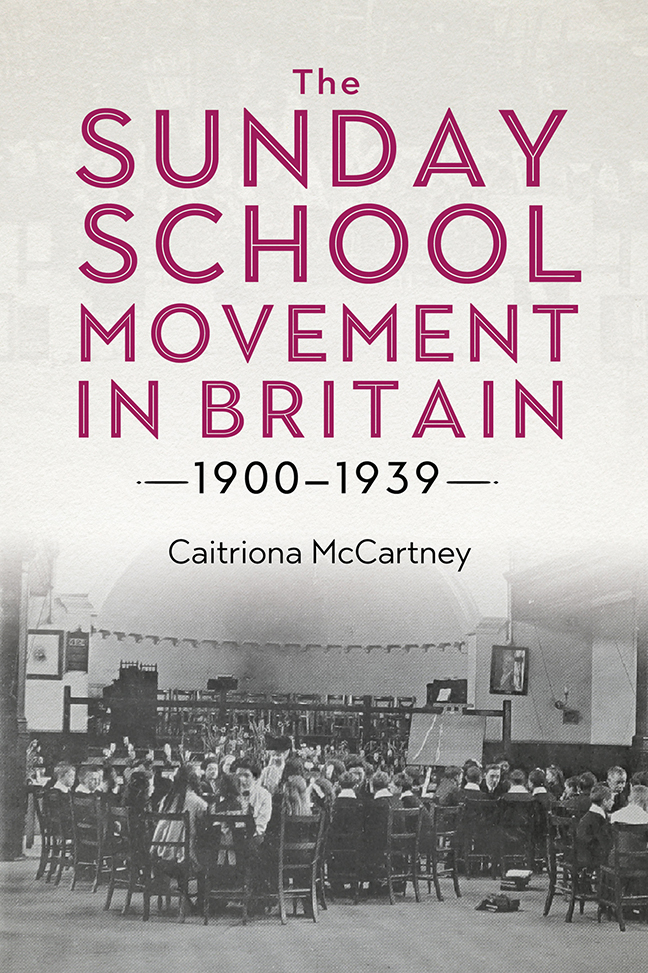Book contents
- Frontmatter
- Dedication
- Contents
- List of Illustrations
- Acknowledgments
- List of Abbreviations
- Introduction
- 1 British Sunday Schools before the First World War, 1900–14
- 2 British Sunday Schools and the First World War, 1914–18
- 3 Sunday Schools in the Religious Life of the British Forces, 1914–18
- 4 British Sunday Schools between the World Wars, 1918–39
- 5 Teaching, Training, and Teachers: Reforming the Sunday School Movement, 1900–39
- 6 British Sunday Schools and the World, 1900–39
- Conclusion
- Bibliography
- Index
- Studies in Modern British Religious History
3 - Sunday Schools in the Religious Life of the British Forces, 1914–18
Published online by Cambridge University Press: 11 January 2024
- Frontmatter
- Dedication
- Contents
- List of Illustrations
- Acknowledgments
- List of Abbreviations
- Introduction
- 1 British Sunday Schools before the First World War, 1900–14
- 2 British Sunday Schools and the First World War, 1914–18
- 3 Sunday Schools in the Religious Life of the British Forces, 1914–18
- 4 British Sunday Schools between the World Wars, 1918–39
- 5 Teaching, Training, and Teachers: Reforming the Sunday School Movement, 1900–39
- 6 British Sunday Schools and the World, 1900–39
- Conclusion
- Bibliography
- Index
- Studies in Modern British Religious History
Summary
Sunday schools played an important role in forming and sustaining the faith of many men serving in the armed forces. The time the men had spent at the schools meant that many were familiar with Christian doctrine, theology, and hymnody to a greater or lesser extent. The schools also continued to support their former scholars on the fighting front through prayer, letters, magazines, and parcels. For many men, the support of their Sunday school was vital to their spiritual lives while away from home. However, the role of schools in the lives of these men has been largely underplayed by historians. This is perhaps influenced by the conclusions of the then contemporary literature which suggested that Sunday schools had little effect on those who passed through them. Those who wrote contemporary ‘reports’ such as The Church in the Furnace (1917) and The Army and Religion: An Enquiry and its Bearing upon the Religious Life of the Nation (1919) argued that Sunday schools failed to educate their scholars to a high enough standard. In this chapter, we examine these claims alongside previously underutilised archival material written by Sunday school teachers and their former scholars serving in the British forces. The chapter will go on to demonstrate the continuing and significant role Sunday schools played in the religious life of the British forces during the First World War. As this chapter will show, Sunday schools had a profound impact on the spiritual lives of the men; the lessons they had learnt at them brought comfort and assurance even in the most challenging circumstances.
Perceptions of Sunday Schools in ‘Reports’ Concerning the Army and Religion
Even before the First World War had ended, Sunday schools suffered some damning criticism. As already mentioned, the writers of The Church in the Furnace (1917) and The Army and Religion (1919) felt that the schools were ineffective. Those who wrote the essays and reports in these two books were convinced that Sunday schools had contributed to the poor religious state of the British Tommy. For example, a hut worker stated: ‘Our Sunday-schools are woeful – to anyone who knows anything of the difficulty of teaching, utterly woeful’. Likewise, another commentator suggested that among the men ‘ignorance and misconception do exist, many seem to know but do not realise nearly enough. […] This, doubtless, in part points to ineffective or inadequate Sunday or day school teaching’.
- Type
- Chapter
- Information
- The Sunday School Movement in Britain, 1900-1939 , pp. 73 - 94Publisher: Boydell & BrewerPrint publication year: 2023



